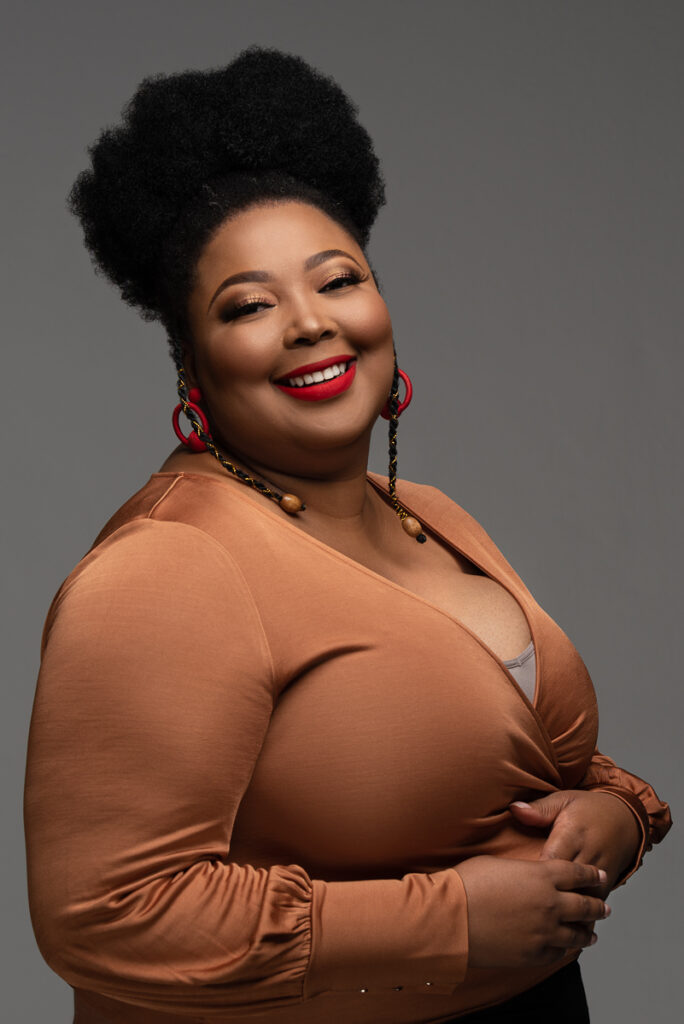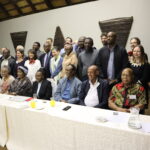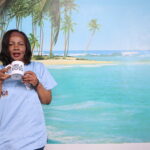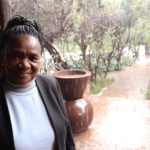- Tlaleng Mofokeng is a doctor, sexual and reproductive health and rights activist, and the United Nations special rapporteur on the right to health.
- Sean Christie spent time with Mofokeng at her home in Sandton, Johannesburg, to find out what makes her tick.
- She spoke about her parents, Aus Aggie and Bro Mike, her son, and why she spares her husband the glare of public life.
When I met Tlaleng Mofokeng in January, the world was waking up to (and wringing its hands over) the phenomenon that is ChatGPT, a natural language processing tool driven by artificial intelligence technology. We wondered whether two people like us — a journalist and a public figure — would ever again sit down to an interview.
“Please, no more loss of human contact!” Mofokeng lamented, but I was keen to see what the chatbot would write about her, given the abundance of online source material, in the form of dozens of interviews she has given. And so we asked ChatGPT for a word portrait, and in seconds had one.
The first AI-generated paragraph was an impeccable conference brochure blurb: “Tlaleng Mofokeng is a South African medical doctor and sexual and reproductive health advocate. She is an expert in the field of sexual and reproductive health and rights, and is known for her work in advocating for the rights of women, especially those in marginalised communities.”
The article went on to describe her qualifications — bachelor of medicine and bachelor of surgery degrees from the University of Kwa-Zulu-Natal — and the major milestones of her professional career: 11 years spent working as a doctor and abortion service provider for the Gauteng health department, before opening a women’s health clinic in Johannesburg called Disa. It also charted her journey as a sexual and reproductive health advocate, activist and educator, from her leadership of the Sexual and Reproductive Justice Coalition of South Africa in 2015, to her appointment by the Human Rights Council on 3 July 2020 as the fourth special rapporteur on the right to health.
[WATCH] Dr T on Bhekisisa’s most recent episode of Health Beat on sex work decrim
However, when the article started on more intimate biographical details, Mofokeng’s tentatively impressed expression suddenly turned.
“Wait, what? It says I grew up in Warden. You had to be white to grow up in Warden in the 80s. I am from QwaQwa!” she said, addressing the article on the screen with disapproving sternness.
“We are going to have to do this old school.”
To follow a river unobstructed until it becomes a dam
We were talking in the kitchen of her home in Sandton, deep within one of those heavily treed neighbourhoods that confounds digital route finders with its access booms, security pillboxes and anti-mobility palisades. I mentioned that, in the late 90s, students of South Africa’s cities were referring to the privatisation of public streets as a human rights issue, yet today this grabbing of formerly public space has become completely normalised. I was trying to be mildly provocative — Mofokeng is after all one of the country’s foremost human rights activists, appointed by the United Nations (UN) to look into and report on issues of access (to healthcare) — but she simply nodded her vigorous agreement.
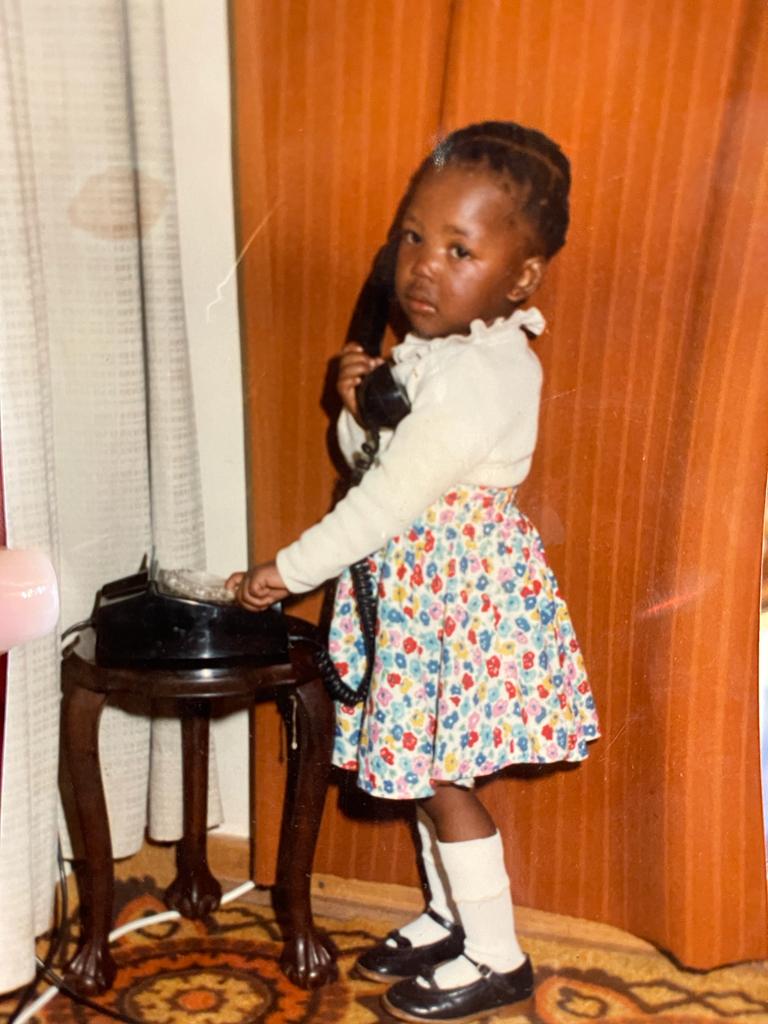
“Growing up in QwaQwa, you could follow the Namahadi River unobstructed all the way to Fika Patso dam. You can’t do that here.”
The QwaQwa Mofokeng refers to — a Bantustan created by the apartheid government in 1974 in the foothills of the northern Drakensberg — hasn’t existed since 1994, when it was dissolved and reconstituted as a municipality of the Republic of South Africa. Residents still identify with ‘QwaQwa’, though, including Mofokeng, who retains very close ties to the place.
“My mother, Agnes, still lives there, and my eight-year-old son stays with my mother, partly because I want for him what I had in childhood — to be able to go to a friend’s house and play in a dusty street, or pick mielies at my aunt’s place. It sounds silly, but with the work that I do — the relentless travel, the hotel rooms — I have come to value simplicity. I want him and my niece, who is also with my mom, to be children for as long as possible, because life is hard. My mother can give what I can’t.”
Mofokeng gives another reason for the decision to live apart from her son.
“I had him in 2014, and for the first three months I hardly slept, I obsessively needed to know if he was still breathing.”
This had a lot to do, she believes, with unprocessed trauma from having worked for years in paediatric emergency at South Africa’s biggest referral hospital for specialised care, Charlotte Maxeke Hospital.
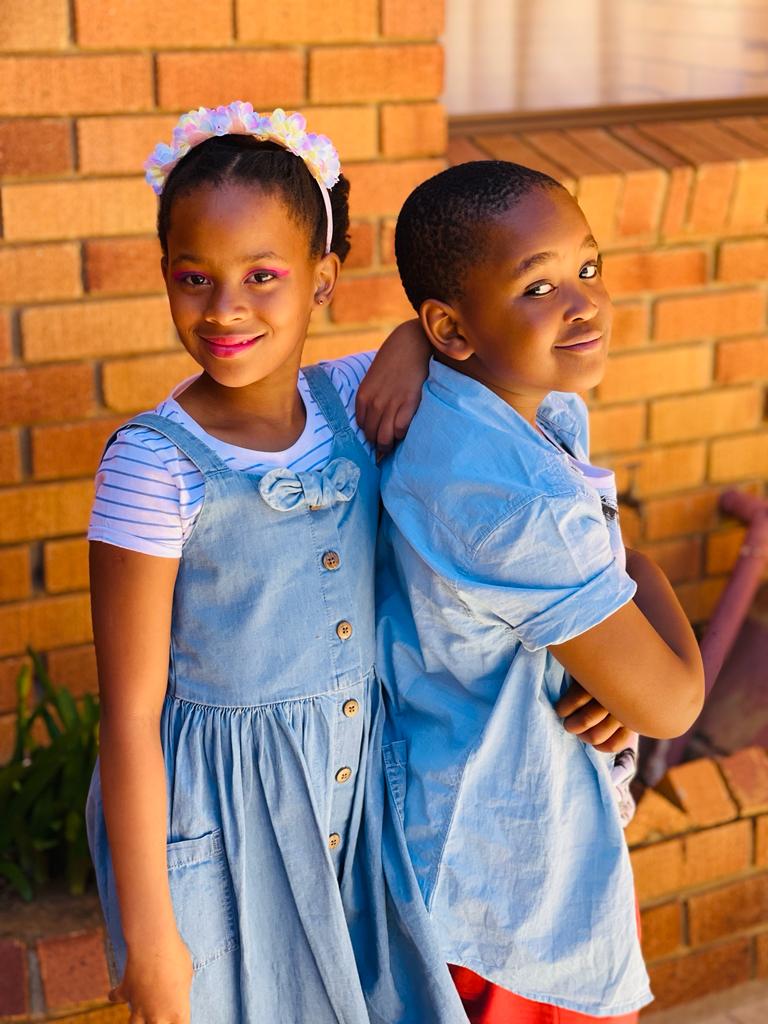
“It is one thing to work in an adult casualty — it’s adults harming adults — but when you work in a paediatric emergency and you realise the things that adults do to children, it’s another thing. I became so worried about my son’s wellbeing that I lost the ability to experience daily life in any meaningful way,” Mofokeng says, adding that one of the great lessons of recent years has been learning to accept help.
“Another thing that chatGPT won’t tell you,” Mofokeng says, “is that I’m still recovering from two bilateral hip replacements. We don’t talk about how, in the ableist society in which we live, we tend to mask damage and defer dealing with it. The COVID-19 shutdown gave me a chance to deal with my broken body, but even then I wouldn’t have survived 18 months on crutches were it not for the support of family.”
Mofokeng doesn’t often talk about her family but her mother — “Aus Aggie”, as Mofokeng calls her, is the notable exception.
In her 2019 book, Dr T: A Guide to Sexual Health and Pleasure, Mofokeng credits her mother as the reason she does not recall “ever feeling awkward or shy to talk about sex or sexual health-related topics”. Mofokeng remembers how her mom used to describe menstruation as “something wonderful to celebrate”, and how, when her first period arrived, Mofokeng called her mother and yelled, ‘Hahahaha ke ngwanana jwale. I have my periods at last’.
Aus Aggie and Bro Mike’s child
Aus Aggie trained as a teacher and specialised in teaching braille and sign language before buying and operating supermarkets with Mofokeng’s father, Ntate Ngaka, or “Bro Mike” as he is commonly known.
“She was this organic feminist who delayed falling pregnant because she had goals. She brought her daughter into the workplace and claimed her weekends for herself. She had two more kids — my younger brothers — and was very involved with her church, yet I don’t recall her ever being conflicted.
“She didn’t have the vocabulary of gender and feminist studies but she lived her life with so much freedom, and was just so … herself. Looking back now with all of the fancy theoretical language that I have, I can see that her example probably enlarged my sense of what I could do in life,” Mofokeng says.
The big event each year was a party Mofokeng’s mother and other parents organised for the children on their street.
“We would have a mock wedding with a bride and a groom, and bridesmaids and page boys, and when I say it out loud it sounds like a shameless exercise in entrenching heteronormativity, but actually it was the best thing on earth. I mean, what else did we have to do? It is not like the Bantustan had a community swimming pool,” she says, opening a fan and fluttering it by a cheek.
Her own wedding photos hang on the wall behind her — her husband in a smart blue suit, she in a dress whiter than the peaks of the Malotis in winter. Before I ask she says, “I don’t speak about hubby. I try and spare him the glare.”
Her mother’s daughter — in self-assurance in style
Another more intimate intergenerational activity involved accompanying her mother to the nearby (white) town of Bethlehem to scope out new wares at Iletique Modes boutique, or to Sugar’s salon where her mother would sit for hours having her hair permed.
“She was very stylish, my mother,” Mofokeng says. “She wasn’t trying to be fashionable, she just loved looking good.”
It was turning out to be one of those Johannesburg mornings that jumps 10 degrees between 8am and 10am. Mofokeng — her mother’s daughter both in self-assurance and style — was wearing a dress printed with colours that reminded me of Henri Rousseau paintings. She leaned forward, arms on the table.
“I have described my childhood in idyllic terms, but it was also harsh and traumatic,” she says.
“I think those mock weddings were actually an attempt by our parents to manage the trauma of living with a constant military presence. I think there had to be an intentionality in trying to inject joy in our lives, and everyone loves a good wedding, right?”
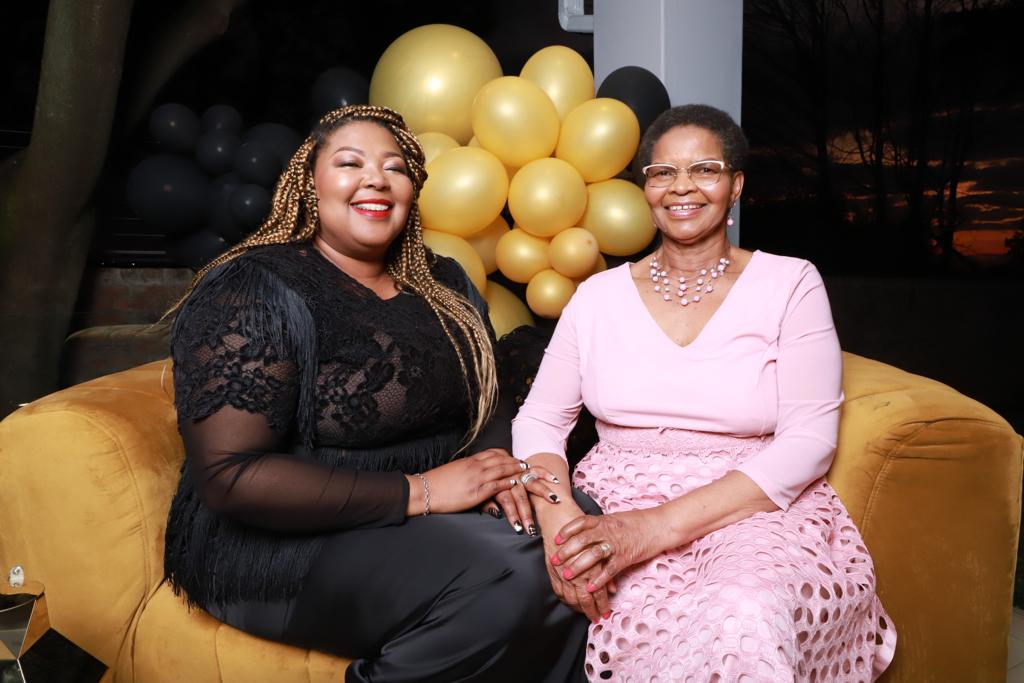
On those trips into Bethlehem, Mofokeng would get stuck in the medicine aisle of the grocery store, looking at first aid kits, recalling the injuries she had seen in the riots that surged around her home.
“My mother will say, ‘children at that age were buying toys but you were comparing the shapes and sizes of plasters’. I wanted to be part of those protests, and the adults allowed this. I was taught how to throw stones at armoured vehicles. You roll your fingers as you release the rock, sending it spinning towards the target,” she says, flicking her fingers.
I’m struck by Mofokeng’s tonal range — an actor’s falsetto when being light-hearted, dropping to a warm bass when being serious. Also, the speed with which she pivots between the two modes.
“When I bring a report to the UN that highlights issues of discrimination, I bring it as someone who embodies many of the characteristics of discrimination. This work is for the eight-year-old me, who should never have had machine guns pointed at her by soldiers.
“This work is for the adult Tlaleng who has lived and worked under threat of South Africa’s everyday violence against women. This might sound selfish, but I’m doing this to save my own life, and to create a life of dignity for myself. If it makes a difference for others, one can only feel humble about that.”
Fomenting the future of a healer
If Mofokeng’s future as a healer was fomented in the chaos of street protests, her understanding of structural injustice coalesced while at university.
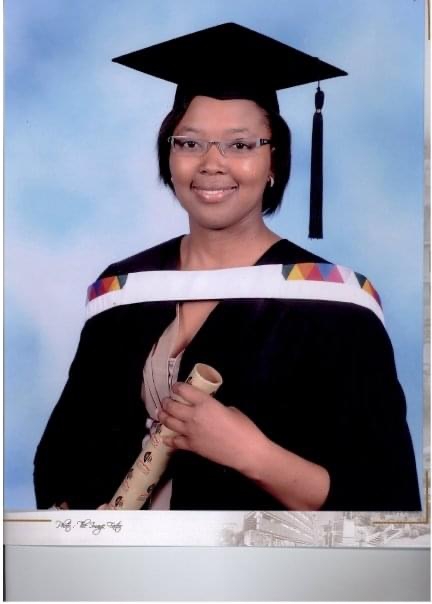
“One night, when I was on duty at King Edward Hospital, I received a call to say that a cousin was experiencing complications during labour. She had waited four or five days for a caesarean, and of course the baby had died by that stage.
“I remember thinking, I’m literally in a hospital helping to save women’s lives, and this is what happens to my own people because they are geographically located in a place where infrastructure is neglected,” she says.
It was also at university that Mofokeng realised medical professionals could be, and often were, complicit in the unfairness of society.
“Remember last year when the MEC for health in Limpopo, Phophi Ramathuba, released those videos in which she yells at a Zimbabwean patient for putting strain on the province’s healthcare system, and at healthcare workers for sitting down to lunch? Where do you think that arrogance comes from? It is indivisible from the way that medical training happens to this day,” says Mofokeng, who says she saw first-hand the bullying of young doctors by their seniors.
“Young female students being told to get their tubes tied if they want to specialise; senior doctors yelling and disregarding their students’ complaints of exhaustion … You can’t subject people to this treatment and expect them to go out into the world as empathetic practitioners who won’t abuse their power,” says Mofokeng, and although we didn’t know it at the time, a study was published that day in Teaching & Learning in Medicine, which found that 80% of participating Stellenbosch University medical students had experienced mistreatment from doctors.
Medicine, politics and patience
For the last six years, Mofokeng has lectured undergraduates at home and abroad on human rights and health.
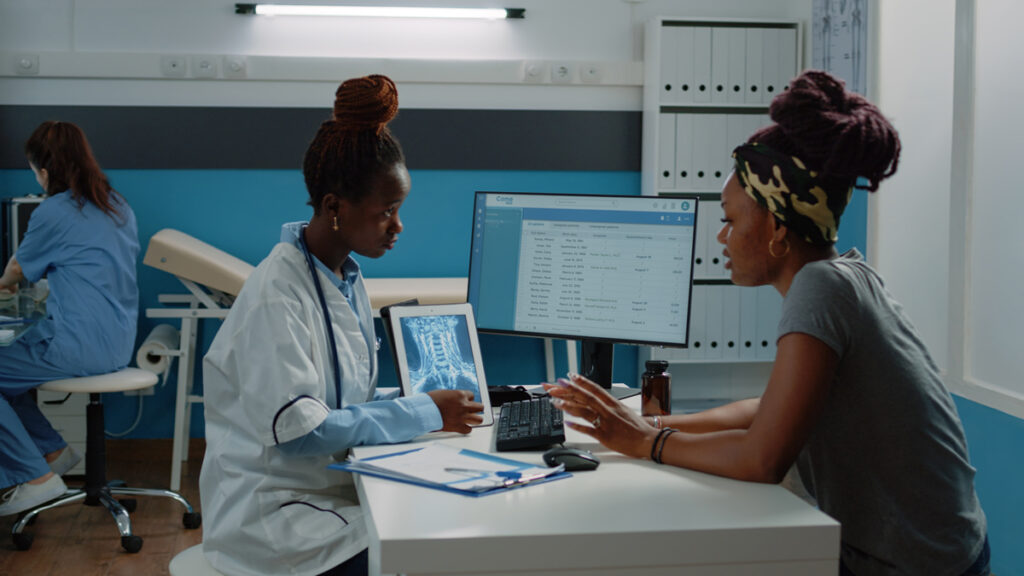
“I remind students that it was state doctors who shielded the state security men who murdered Steve Biko in 1977. I tell them that unless they cultivate an awareness of their social and political context, and the power they have as doctors working within those contexts, they are going to be used to advance a political ideology.
“We can never be happy to just practise medicine, because medicine is political. It is riddled with all of the harms that we see in society. I mean, that’s why we call you a patient — because you need to be patient!” yells Mofokeng, now in full polemical flow.
This last assertion I cannot believe. I question whether this is indeed the etymology of the word. Mofokeng bursts out laughing, and says, “god, I don’t know,” but then we google it and indeed, patient comes from the Latin patiens, from patior, to suffer or bear. The patient, in this language, is truly passive—bearing whatever suffering is necessary and tolerating patiently the interventions of the outside expert.
‘The only way out is through’
Time is running out — Mofokeng needs to pack for Geneva, and from there she will head for Mexico. This is a big year for the multilateral agencies she has ties to — the World Health Organisation is turning 75, and it’s the 75th anniversary of the Universal Declaration of Human Rights.
“We need to ensure that the messages these powerful bodies pass are properly conceived and don’t get lost when the balloons go up and the fanfare commences,” she says.
How, I wonder aloud, does she manage to fit it all in — her own practice, her (unpaid) work as a rapporteur, and some semblance of a home life?
“I did all my pap smears for the year in a single week in January. Fortunately, my patients know what kind of doctor I am,” she says, and then lowering her voice, adds, “exhaustion and burnout is something that I’m going through, and I’m trying to be gentle while just going through it, because the only way out is through it, you know.”
It seems a fitting note to end on, but Mofokeng shakes her hands in the air in front of her face like she’s dispersing her own words.
“Ag, I don’t believe in a balanced life, anyway. I am where I need to be right now, and I just need to do the best I can.”
Sean Christie is a freelance journalist and author.


